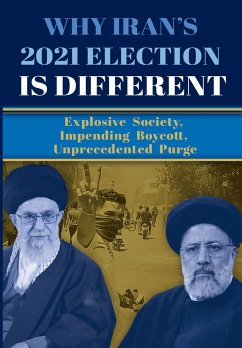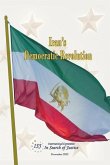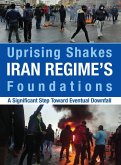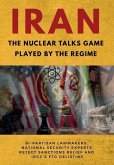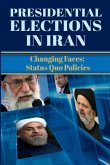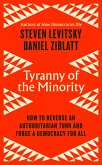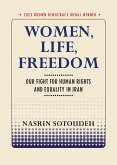This report highlights the difference between the 2021 election and all prior 12 presidential elections in Iran. While every election since 1979 has been rigged, they have served to give an appearance of democracy and republicanism to the ruling theocracy. The 2021 election is, however, vastly different, because Iran in 2021 is on the threshold of a fundamental transformation. Khamenei finds his regime increasingly weak and vulnerable following a series of uprisings since 2017, endemic corruption, and a bankrupt economy. The explosive state of Iranian society was reflected in the crushing blow of the 2020 parliamentary election boycott, and in the growing prowess of the nationwide organized opposition. All of these crises are aggravated by ferocious factional infighting. Faced with these realities, Khamenei has opted to close ranks and consolidate power in the hands of those absolutely loyal to him to prevent the seismic shift he knows is coming. In a move driven by the Supreme Leader, the Guardian Council has disqualified several longtime establishment figures, most significantly Ali Larijani, the former speaker of the regime's parliament for 12 years. A former IRGC brigadier general and Secretary of the Supreme National Security Council, Larijani has been a senior advisor to Khamenei and a member of his inner circle. Khamenei has now dispensed with the no-longer beneficial "moderate- hardliner" farce in favor of securing the presidency of his selected candidate, Judiciary Chief Ebrahim Raisi, notorious for his key role, as Deputy Prosecutor of Tehran and a member of the "death committee," in the executions of as many as 30,000 political prisoners, primarily activists of the People's Mojahedin Organization of Iran (MEK), in 1988. Raisi began his rise in the regime's hierarchy by ordering hundreds of other executions in the early 1980s. By sacking his inner circle in favor of Raisi, his most loyal ally, Khamenei will rely heavily on Raisi as well as the IRGC to counter the popular discontent, as he will rely on the Qods Force to expand his proxies in Syria, Lebanon and Iraq. The more isolated he finds himself at home, the more he needs to count on such repressive institutions. This election marks an end to the games and masquerades. It is now evident that the true fight is between the people and the organized opposition seeking freedom and democracy on the one side, and the entirety of the regime headed by Khamenei and Raisi and powered by the IRGC on the other. The electoral purge is, however, only a stopgap, which will likely backfire, given the fragile state of the regime. Khamenei has alienated a significant segment of the establishment and further narrowed the theocracy's power base. The tide has shifted in favor of the people, who are expected to respond to the Supreme Leader with a massive boycott, the flip side of their desire to end the rule of the ayatollahs and establish a free and democratic republic.
Hinweis: Dieser Artikel kann nur an eine deutsche Lieferadresse ausgeliefert werden.
Hinweis: Dieser Artikel kann nur an eine deutsche Lieferadresse ausgeliefert werden.

